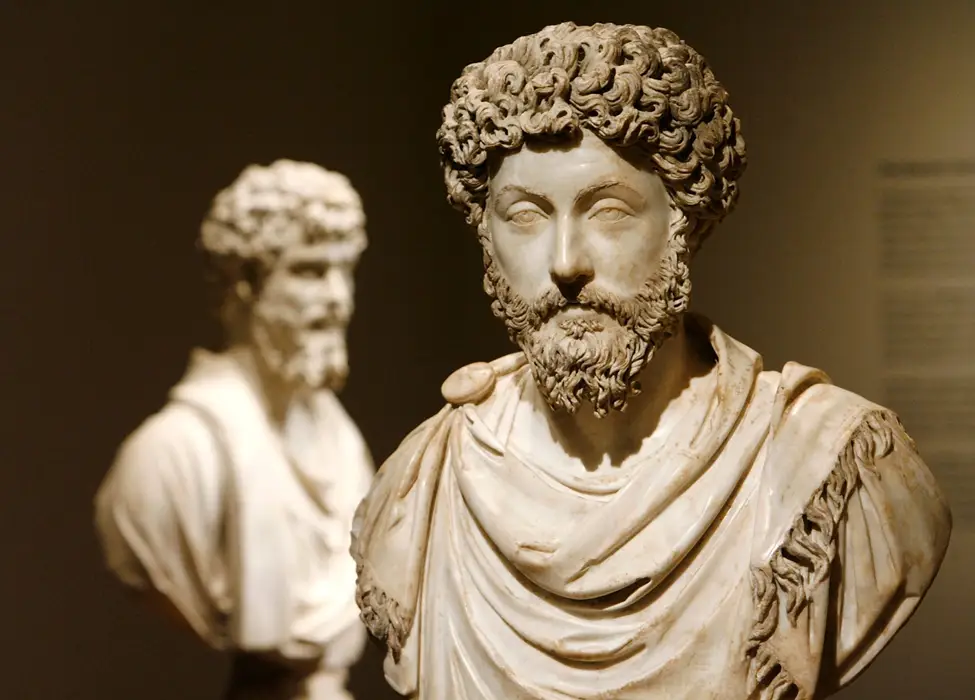Attribution: upload.wikimedia.org
In the modern age, it can be radical to live with less. From fast fashion to single-use plastics, the world around us encourages consumption at a pace both unsustainable and unfulfilling. But what if we took a step back and asked a more ancient question: what do we really need?
Long before the climate crisis, the Stoics, ancient Greek and Roman philosophers including Epictetus, Seneca, and Marcus Aurelius, grappled with questions of virtue, simplicity, and self-control. Their teachings, even today, offer an interesting framework for addressing modern environmental challenges. At its core, Stoicism is a philosophy of learning to distinguish what is essential from what is merely distracting.
One of the foundational Stoic ideas is that external goods such as wealth, status, and luxury aren’t truly under our control. Relying on those forms of validation for happiness is to build a life on shaky ground. The Stoic philosopher Epictetus once said, “Wealth consists not in having great possessions, but in having few wants.”[1] For Epictetus, the key to freedom was reducing one’s desires, not increasing one’s possessions. This is echoed on the topic of sustainability as we learn to live within limits.
Modern consumerism thrives on manufactured desire. Advertisements suggest that happiness lies in the next product, the latest upgrade, or the newest trend. But the Stoics saw this endless chase as a trap. As Marcus Aurelius wrote in his Meditations, “Very little is needed to make a happy life.”[2] By focusing on what we need rather than what we want, we not only cultivate inner peace but we can also reduce our ecological footprint.
Voluntary Simplicity as Virtue
Sustainability often begins with small acts like using public transit, using less plastic, or buying less. These small acts may seem trivial, but Stoicism reminds us that virtue lies in action, rather than outcomes. We cannot control the scale of the climate crisis, but we can control our personal choices. As Epictetus wrote in his Discourses, “Make the best of what is in our power, and take the rest as it naturally happens.”[3]
This is a call to live with integrity, regardless of the outcome. To recycle a bottle or plant a garden might not stop global warming. But for the Stoic, that is beside the point. What matters is whether such actions align with our values.
Looking at sustainability through the lens of Stoicism reframes it from a burden to a practice of character. The discipline to live with less, the courage to speak up for the planet, and the wisdom to discern necessity from luxury are all Stoic virtues. In a world of overconsumption, choosing sufficiency is a moral act.
Nature as Teacher
The Stoics also revered nature as a rational, interconnected body in which we are a part. Marcus Aurelius often reflected on the order and cycles of nature in his Meditations, urging himself to live in harmony with it. He wrote, “Adapt yourself to the things among which your lot has been cast, and love sincerely the fellow creatures with whom destiny has ordained that you shall live.”[4]
This idea has profound environmental implications. If we see ourselves as participants within nature rather than masters of it, then sustainability becomes a philosophical duty. The health of the planet is not separate from our own well-being. The Stoic ideal of living according to nature invites us to restore that broken ideal.
Taking Action
Perhaps the most famous Stoic teaching is the dichotomy of control, which states that some things are up to us, and some things are not. Climate change, on a global scale, can feel overwhelming. But Stoicism offers a way forward by helping us focus on where we do have agency.
You may not control carbon emissions in China or sea levels in Bangladesh. But you can choose how you travel, how you consume, and many more daily choices. You can choose whether to normalize sustainability in your workplace, school, or neighborhood. The Stoics would call this prohairesis, or the capacity for rational choice that defines our humanity.
Toward a Stoic Sustainability
The Stoic practice begins in the mind as a small thought but unfolds in the world as a collection or stacking up of small acts. As the climate crisis forces us to rethink what a good life looks like, perhaps the Stoics were right all along. Less can be more. Fewer wants, clearer values, and deeper commitments are sustainable practices built upon ancient philosophical traditions.
By applying ancient wisdom to modern problems, we may yet discover that the path to environmental sustainability is also a path to inner freedom. The Stoics didn’t have to worry about melting ice caps or plastic oceans. But they understood, better than most, the power of living with purpose, and the peace that comes from wanting less.
References
- A quote by Epictetus. (2025). Goodreads.com. https://www.goodreads.com/quotes/71368-wealth-consists-not-in-having-great-possessions-but-in-having
- A quote from Meditations. (n.d.). Goodreads.com. https://www.goodreads.com/quotes/65867-very-little-is-needed-to-make-a-happy-life-it
- Pigliucci, M. (2015, February 2). How to Be a Stoic. Opinionator. https://archive.nytimes.com/opinionator.blogs.nytimes.com/2015/02/02/how-to-be-a-stoic/
- Marcus Aurelius Quotes About Nature | A-Z Quotes. (2015). A-Z Quotes. https://www.azquotes.com/author/666-Marcus_Aurelius/tag/nature

